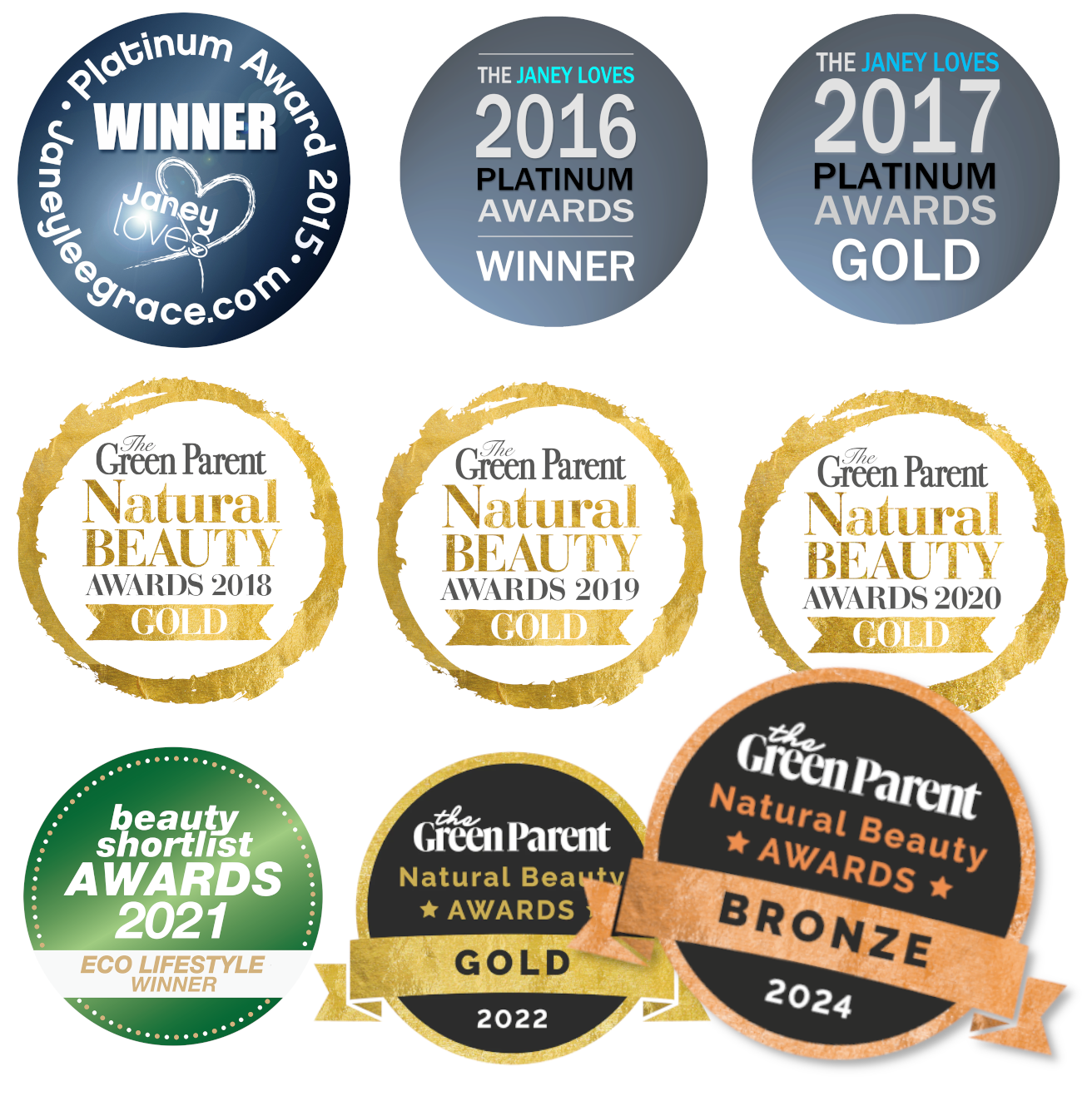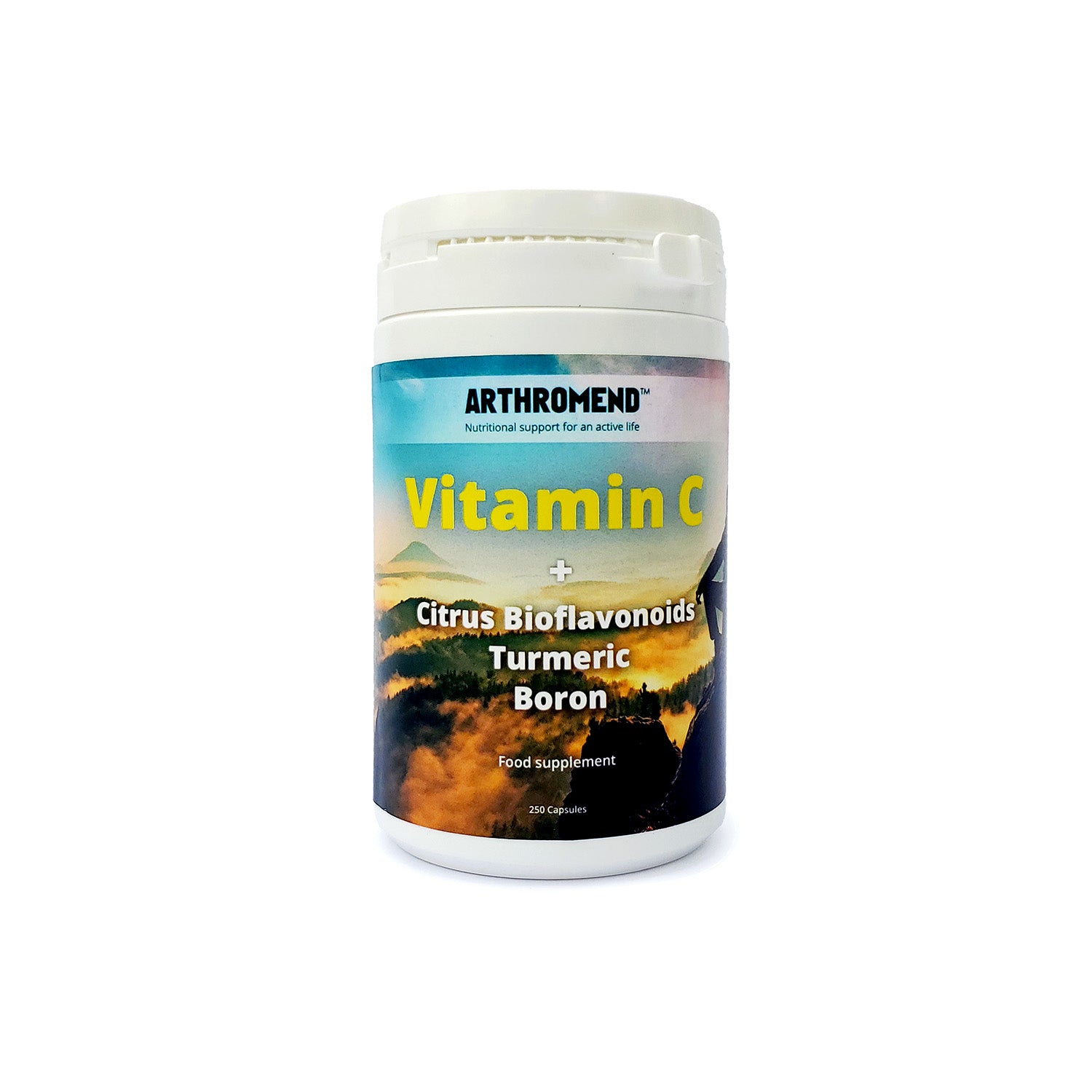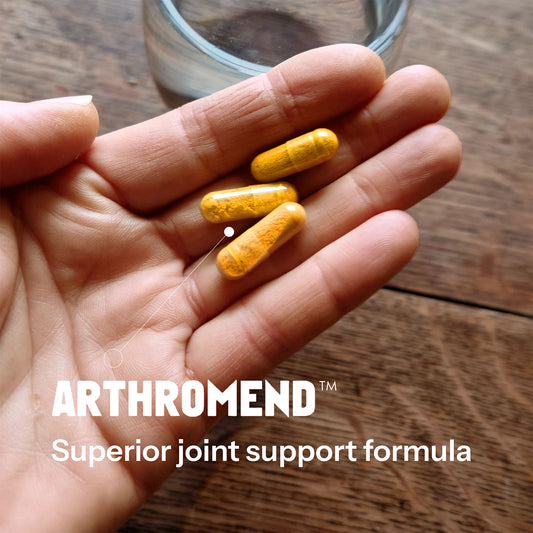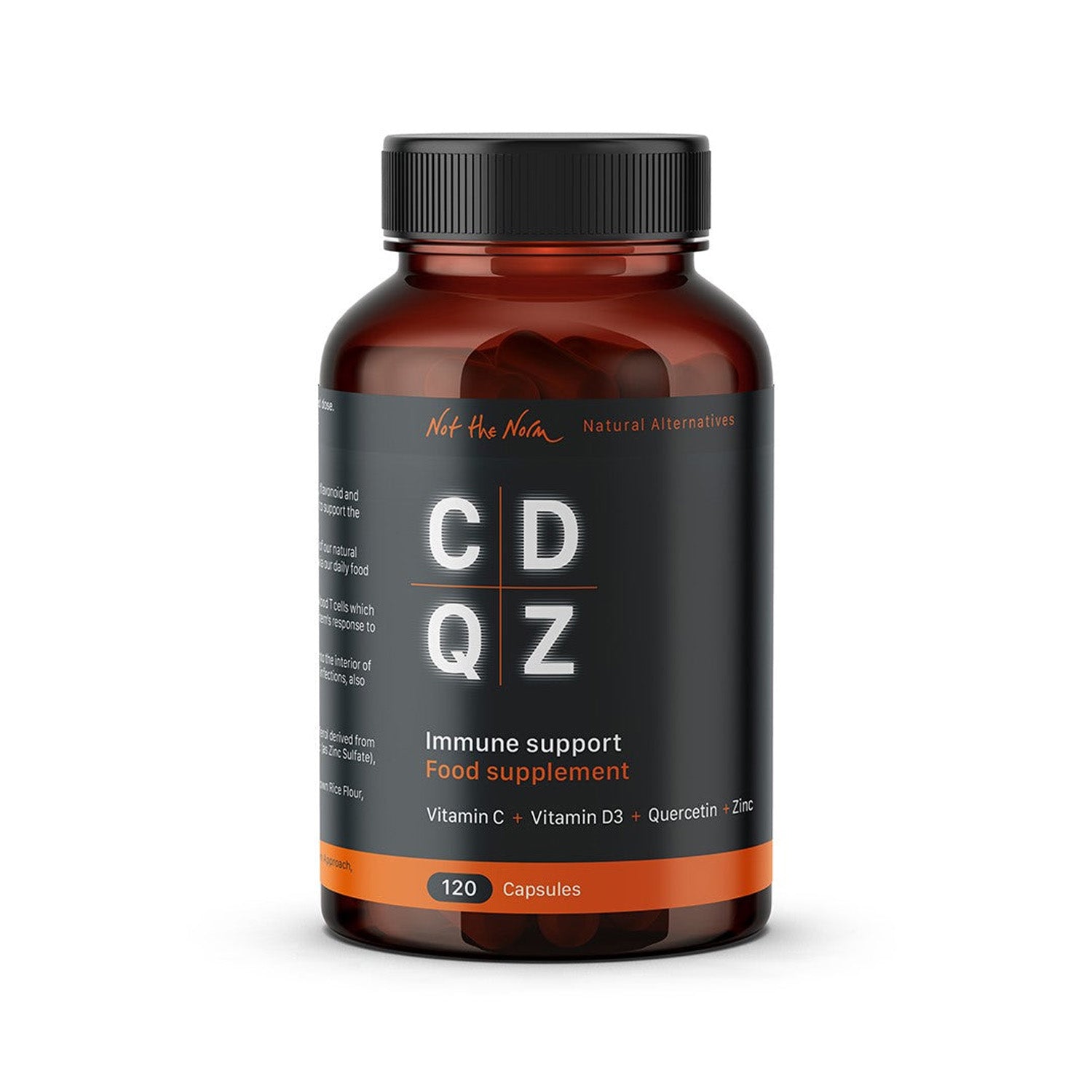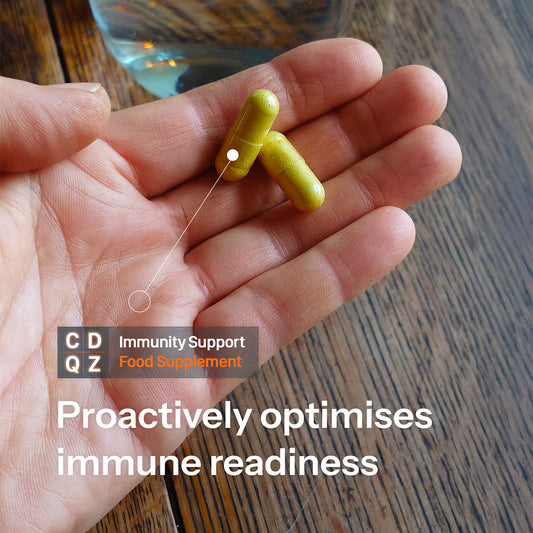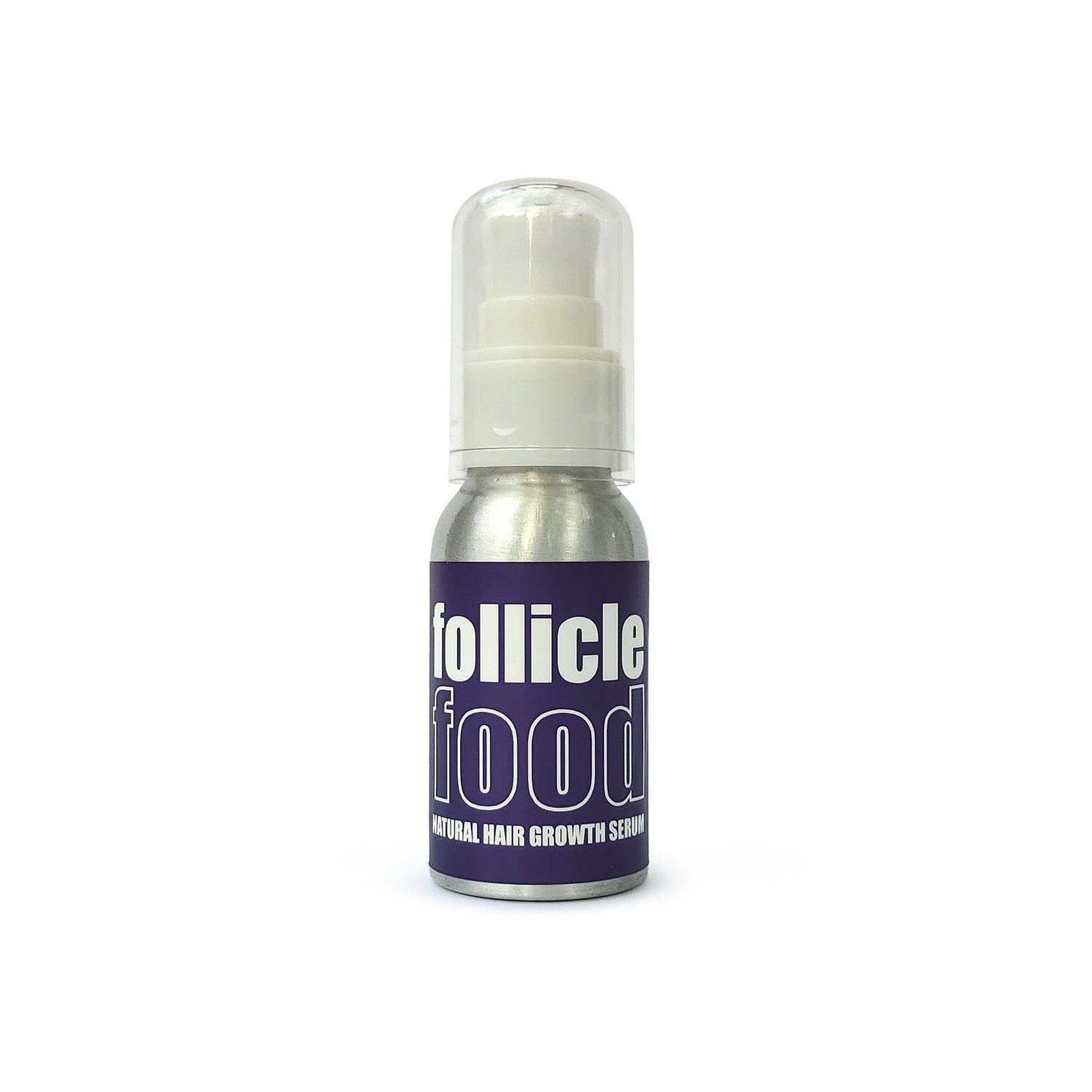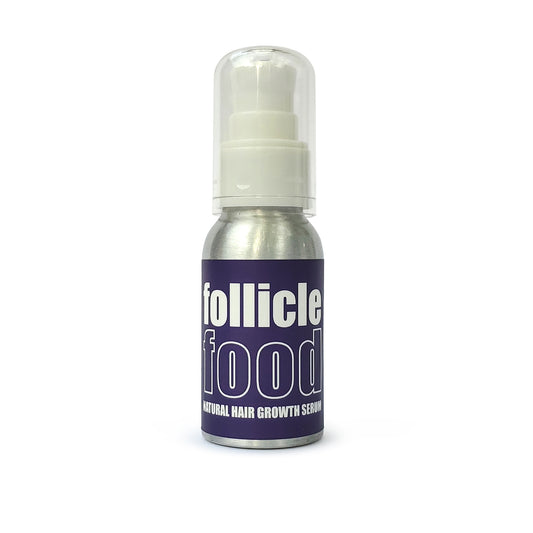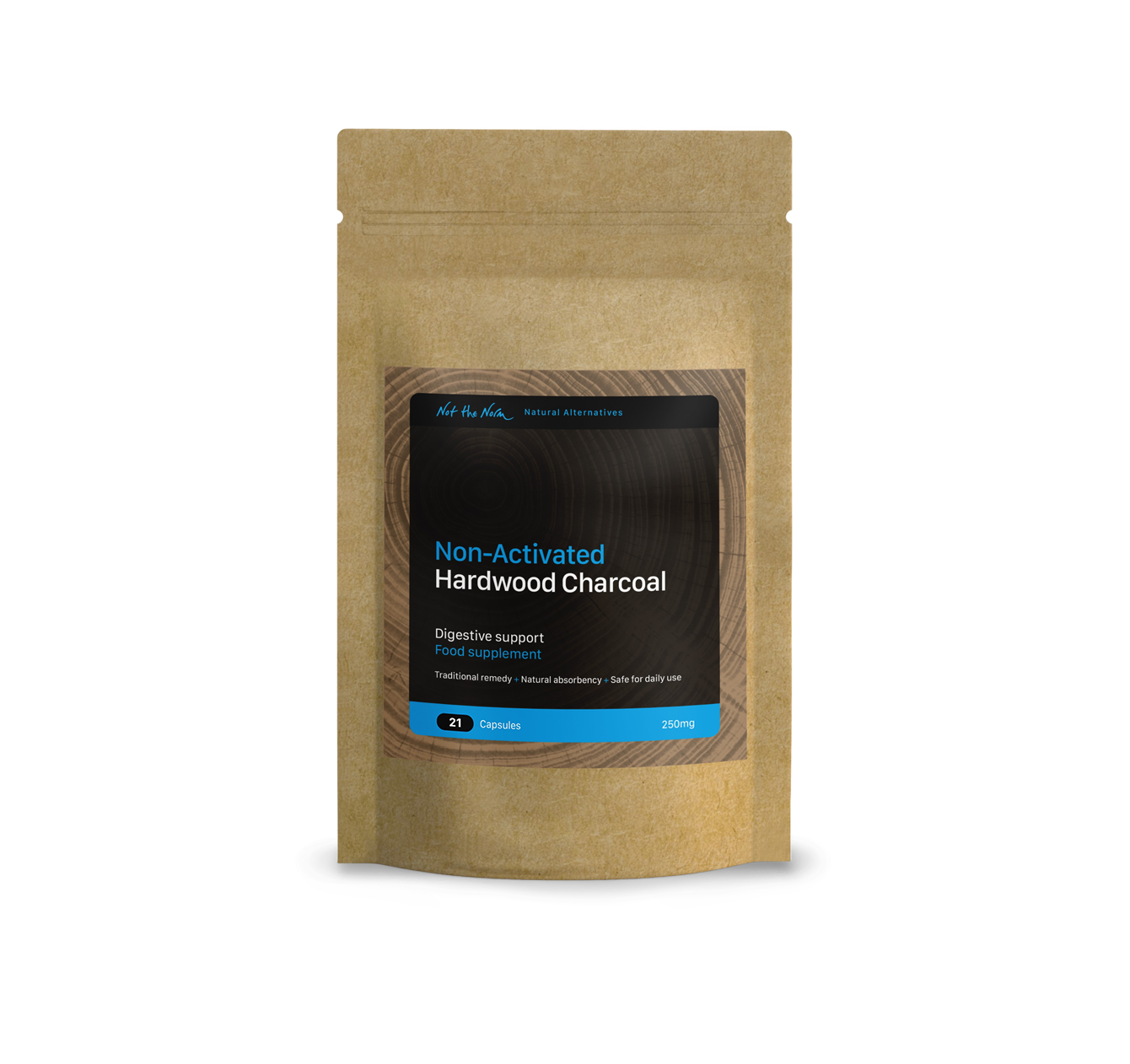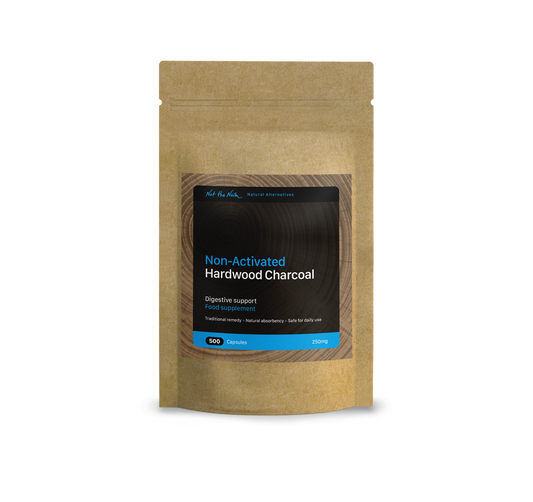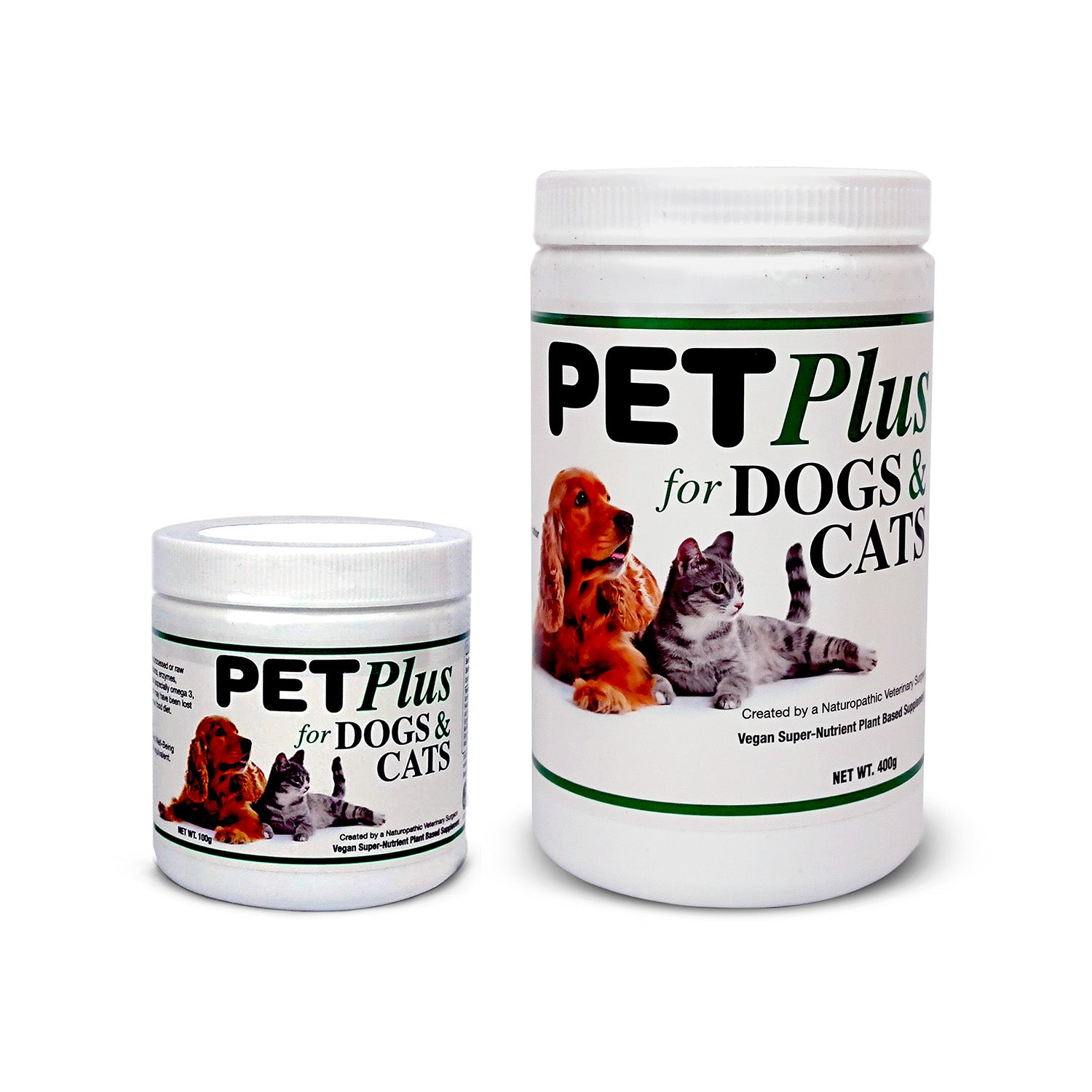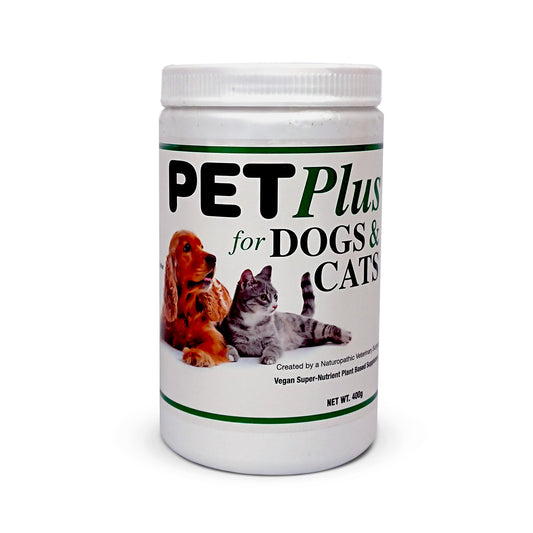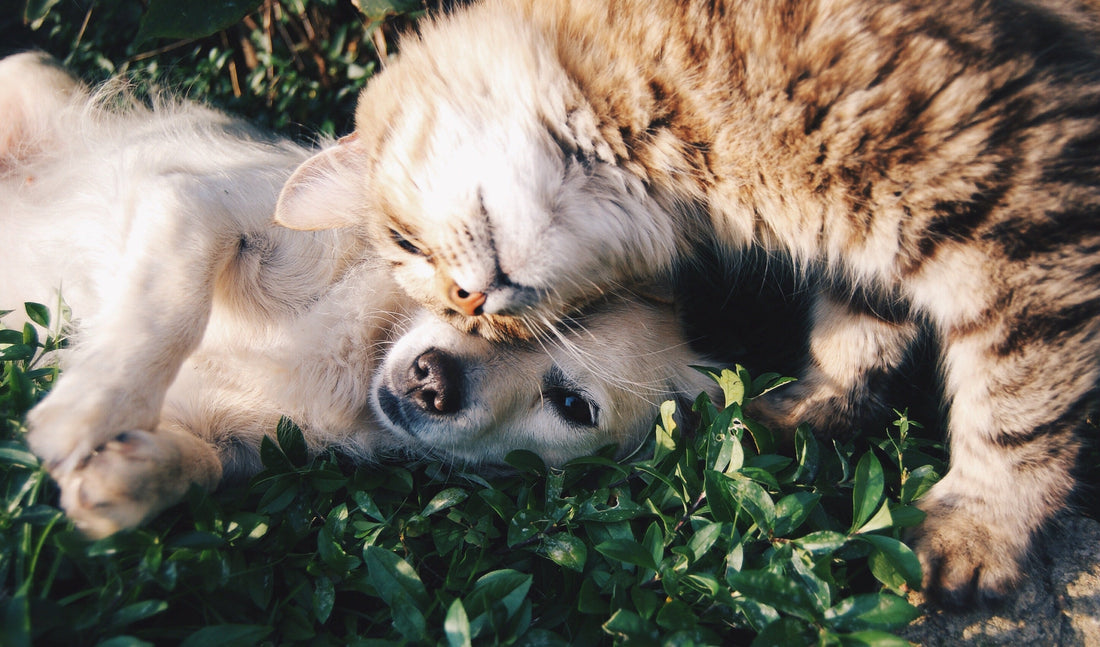Suzi McIntyre, holistic vet and formulator of her popular PETPlus digestive enzyme supplement for cats and dogs, recently decided to make a small change the formulation of PETPlus for Dogs by adding taurine. PETPlus for Cats has always contained taurine. Here Suzi explains why she has added Taurine to PETPlus for dogs.
It has always been known that dogs make their own taurine, so taurine deficiency has rarely been a problem ... until now. Over the last few years, increasing numbers of dogs are being diagnosed with clinical problems associated with taurine deficiency.
Taurine is actually an amino sulfonic acid, although it is loosely referred to as an amino acid. It is essential for cardiovascular function, skeletal muscle development, central nervous system development and the function and healthy workings of the retina.
Taurine and cats
For decades this has been recognised as a potential problem for cats which, as a species, are unable to make their own taurine from their diet. So taurine is one of the essential amino acids for cats which has been specifically included in all AAFCO approved cat foods and most supplements.
Naturally, feeding on whole herbivores, raw, they obtain plenty of taurine because bile is a particularly rich source. Raw meat and fish contains plenty of taurine, as do raw heart, brain and offal. But cooking denatures taurine in the same way as it denatures all proteins and enzymes.
But what about dogs?
In all mammals except the cat family, taurine is naturally synthesized in the body from cysteine, an amino acid, and homocysteine, by an enzyme pathway, in the pancreas.
Interestingly, pancreatitis is rapidly becoming a common problem. I suspect this is associated with the prevalence of feeding processed foods which are by definition deficient in enzymes, causing the pancreas to work ridiculously hard to produce the enzymes to digest the food whose natural enzymes have been destroyed. Crazy isn't it?!
Did you know that the pancreas of rats fed a processed diet for a month was 3 times larger than the rats fed the same ingredients but raw? The pancreas is responsible for the creation of taurine from dietary ingredients, namely an amino acid called cysteine. An exhausted pancreas is unlikely to be able to perform this task effectively.
Besides which, amino acids, such as cysteine, are denatured by processing. So let's join up the dots here. Can we conclude that feeding processed foods is causing the increase in taurine deficiency in dogs? I think we can. Yes!
Health problems due to Taurine deficiency
We now know that there are several clinical situations associated with taurine deficiency in all species, including dogs, cats, humans, rabbits, rats ... in fact ... all mammals.
Central Nervous System (CNS)
Taurine has been shown to cross the protective blood brain barrier to enter the brain, where it performs numerous functions, including stabilizing membranes and inhibiting neurotransmission. Both these functions could reduce the generation of epileptic impulses and seizures.
Believing that epilepsy was a specific situation, dogs presenting with recurrent epileptic seizures have been successfully treated by increasing their taurine intake. We used to give them PETPlus for Cats, which has always contained taurine as cats are unable to make their own.
Some people bought taurine from health food shops and gyms to give to their dogs. So we decided to include taurine in PETPlus for Dogs as well, to address this increasing clinical situation. After all, prevention is better than cure!
CardioVascular Disease (CVD), Most Notably DCM (Dilated CardioMyopathy)
Here, the muscle of the heart wall weakens so the heart is unable to pump effectively. The weak heart wall gradually stretches, becoming thin and increasingly unable to pump the blood out of the heart and around the body or to the lungs.
Fluid accumulates in the lungs and body, leading eventually to all the symptoms of congestive heart failure, including increasing breathlessness, exercise intolerance, inability to climb stairs or walk up hills, coughing and increasing exhaustion.
This condition seems to be more common in the following large breeds of dog, indicating a potential genetic predisposition to Taurine deficiency.
- Golden Retrievers
- English Setters
- Newfoundlands
- St Bernards
- Portuguese Water Dogs
- Cocker Spaniels
- Irish Wolfhounds
Thankfully, this is all reversible by the administration of taurine. So why not give it everyday, to prevent the risk?
Skeletal Muscle Weakness
Taurine deficient mice have been experimentally shown to suffer weakness of their skeletal muscles as well as their cardiac muscles. I am not aware of any such reports in other mammals, but it may well be that pets suffering from DCM are actually also suffering skeletal muscle weakness, but the symptoms are attributed solely to the DCM.
Central Retinal Deterioration
The retina gradually deteriorates causing progressively worsening eyesight and eventual blindness. In cats this is irreversible, but once the condition is recognized and diagnosed, supplementing with taurine can prevent further progression.
It seems to be the same situation in dogs, although to date, it is less common as a cause of retinal problems in dogs than it is in cats.
Cystitis And Bladder Infections
As described above, inability to metabolize cysteine can result in taurine deficiency, because taurine is made in the body (except in cats) by specific enzymes from cysteine and homocysteine.
If the cysteine is not metabolized, it can be excreted by the kidneys and bladder, where it can accumulate and form crystals. These sharp cysteine 'stones' can irritate the bladder wall resulting in cystitis. Symptoms include frequent urination, increased thirst and possibly blood in the urine.
Prevention of this cause of cystitis involves using an enzyme supplement like PETPlus, feeding raw food and ensuring an adequate supply of fresh, chemical-free water at all times. Absolute avoidance of dry foods will also help to maintain urine flow and prevent the stagnation that allows the crystals to form in the bladder. Again, there seems to be a breed disposition, including
- Newfoundlands
- Austrian Shepherds
- Chihuahuas
- Basenjis
- Basset Hounds and
- Scottish Terriers
Summary
So, to summarise, it is simple to prevent taurine deficiency with diet and suitable supplementation. However, it is a challenge to recognize and diagnose taurine deficiency as the symptoms are shared by other causes.
A blood test can be performed to measure the blood levels of taurine, but that only shows what's in the blood at that exact moment which does not necessarily relate to the absorption and use of taurine in the actual body tissues, e.g. muscle, retina, brain and heart.
As always, enzymes are essential for the proper functioning of every single cell in every single body. So be sure to give your pets plenty. And make sure you have plenty of enzymes yourself too, so that you too can manufacture your own taurine.
Content Disclaimer







